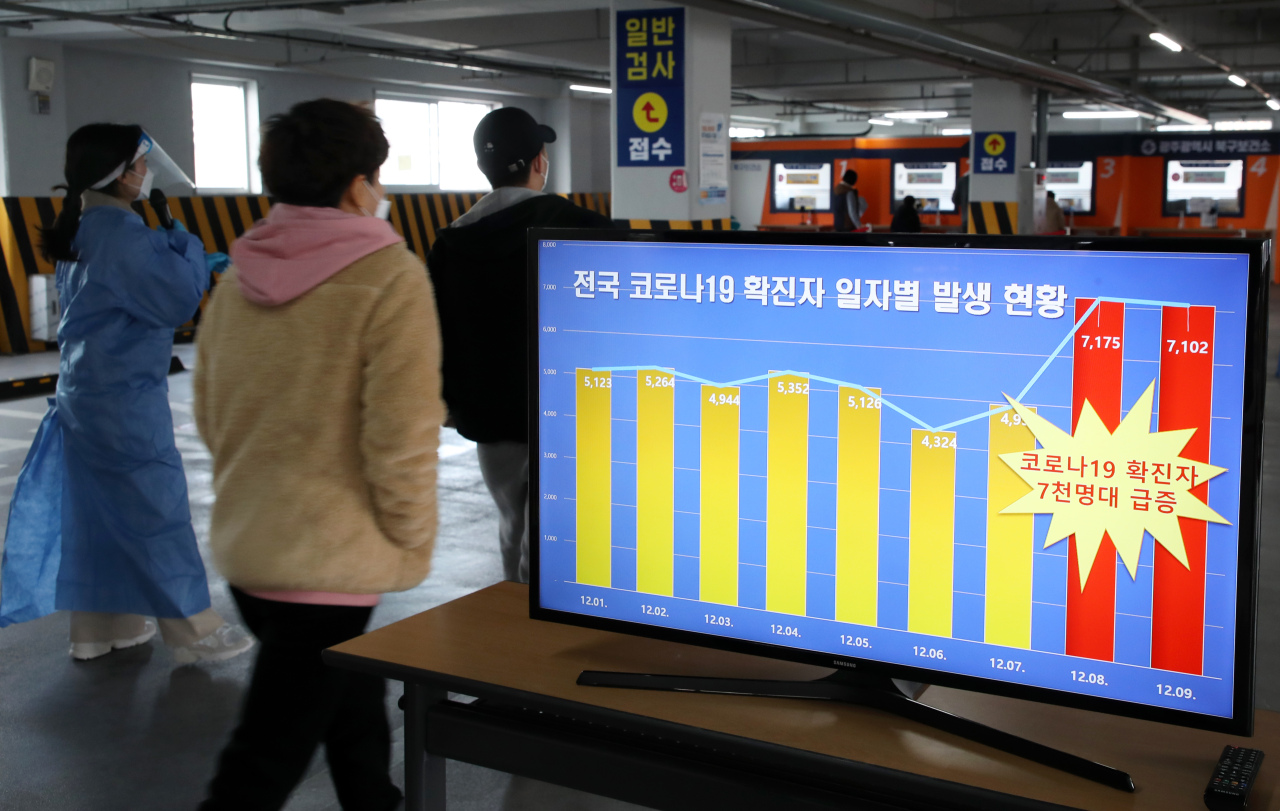 |
The graphic showing the daily coronavirus infection cases is on display at a testing center in the southwestern city of Gwangju on Thursday. (Yonhap) |
South Korea's new coronavirus cases stayed above 7,000 for the third consecutive day Friday and its caseload surpassed the grim milestone of 500,000 as the coronavirus continued to spread unabated among the unvaccinated and older adults with waning immunity.
The country reported 7,022 new COVID-19 infections, raising the total caseload to 503,606, according to the Korea Disease Control and Prevention Agency (KDCA).
The figure was the third highest daily total of the pandemic, after a record-high of 7,174 reported Wednesday and 7,102 the previous day.
The number of critically ill COVID-19 patients came to 852, the second-highest after 857 reported Thursday, putting increasing strain on hospitals and intensive care units.
The death toll rose 53 to 4,130, the authorities said. The fatality rate stood at 0.82 percent.
Earlier this week, the government implemented tightened health protocols to contain a rapid winter surge in infections, putting a brake on its plan to bring the country to a gradual return to normalcy.
Private gathering is limited and more businesses need to require patrons to show that they are fully vaccinated or have tested negative for the coronavirus. The measures will remain in effect until Jan. 2.
The authorities said the measures will start to show effects later this week, but health experts warned more stringent measures are needed to slow down the spread of the virus and the omicron variant.
The KDCA reported three more cases of the omicron variant, bringing the total tally to 63.
To shore up vaccine effectiveness, the government said it will cut the dosage interval between primary vaccination and booster shots to three months from the current 4-5 months.
"Our medical response capability is quickly burning out as daily cases remained in the 7,000s for the third day in a row with seniors aged 60 or older accounting for 35 percent of the cases," Prime Minister Kim Boo-kyum said during a daily pandemic response meeting Friday. "Our top priority is the swift administration of vaccines."
On the vaccination front, 83.5 percent of the country's 52 million population have received at least one shot of the vaccine, while 81 percent have received two shots and 10.3 percent have gotten their booster shots. (Yonhap)








